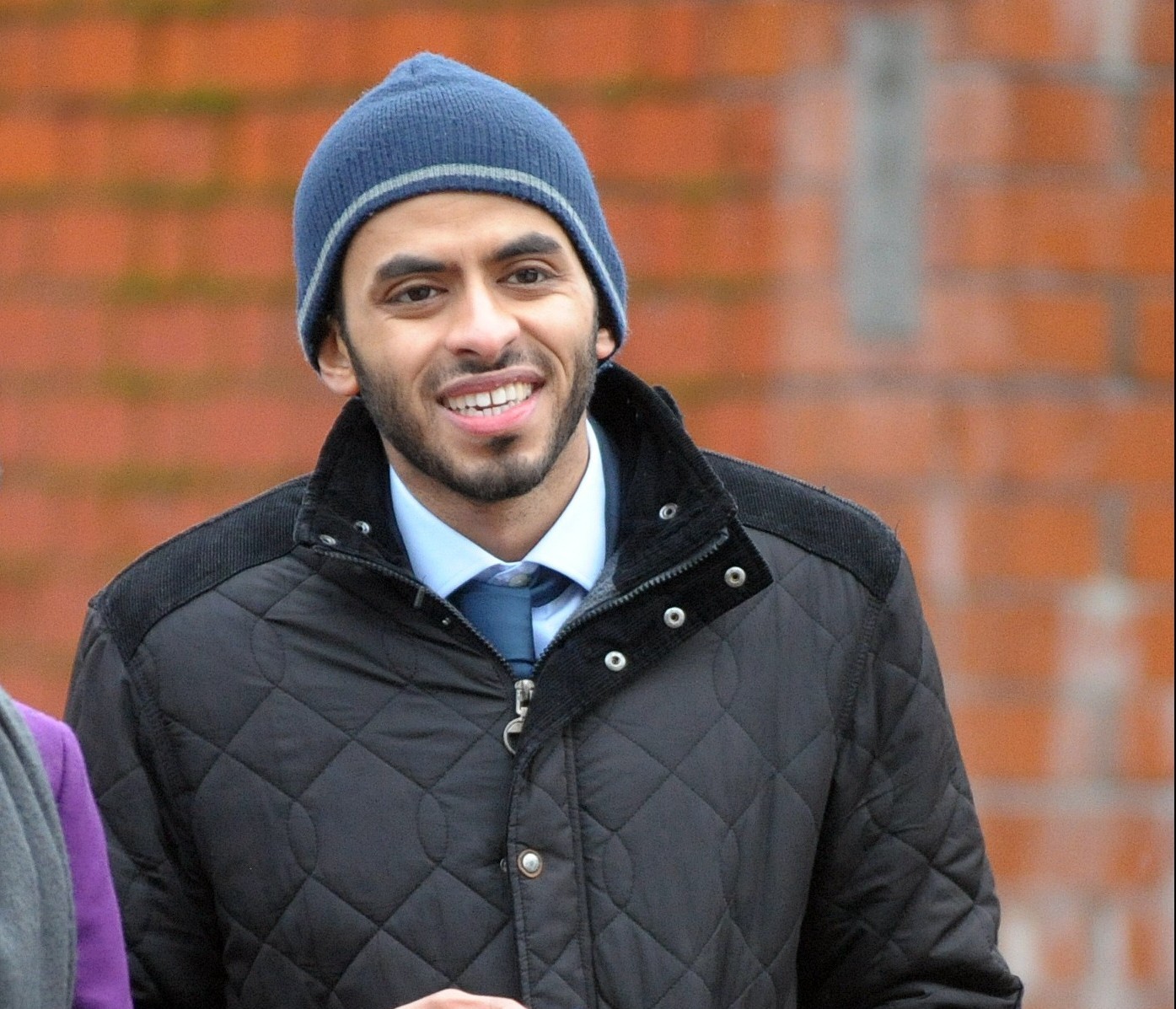A medical student accused of terror offences has said he had no interest in learning how to kill people – or becoming a member of al Qaida.
And Yousif Badri told a judge he found a website showing shootings and the making of hand grenades and shells by doing a Google search.
The 29-year-old former Aberdeen University student was giving evidence at his trial at the High Court in Glasgow.
Badri was arrested on June 6, 2013 the day after sitting his final exams and a laptop, external hard drive and books were seized from his home in Aberdeen’s Ashgrove Road.
The court has heard hundreds of thousands of files were found on Badri’s computer and hard drive, and the case against him involves only a few dozen files and videos.
These include footage of allied troops being ambushed and shot at by snipers and shells being made.
Under examination by his counsel Murdo Macleod QC Badri said he did not want to shoot anyone and had no interest in making shells.
He also likened Islamic State to a “Mafia organisation or a criminal gang” and said the terror group had “hijacked” Moslem history.
He agreed with Mr Macleod that there was an “ongoing debate between militants and non-militants” and also agreed that he was “strongly opposed” to al Qaida and IS.
The author of one book owned by Badri condemned the 9/11 terror attacks on America and said there was no room for terrorism in Islam.
Mr Macleod asked Badri: “Do you agree with this?”
Badri answered: “Yes, I agree with that strongly.”
He was asked by trial judge Lord Turnbull how he found the site from where he downloaded videos which showed shootings and the making of hand grenades and shells.
He replied: “Google.”
Badri also told the court that videos showing soldiers being shot were “essentially propaganda”.
He added: “It is almost to coerce people to join and to give legitimacy to the cause, when there is not really any at all.
“It is moral disengagement saying they are allowed to kill and using some religious text to justify it. What you don’t see are the victims’ families and how they think about it.”
The trial continues.
